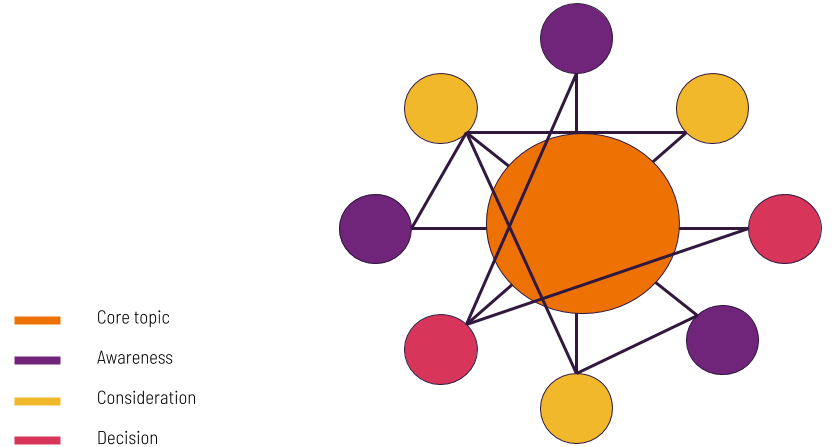SEO optimization is an integral part of any digital marketing campaign. Choosing the right keywords for Google Ads, formally known as Google Adwords, is one of the most important decisions you can make in marketing to build solid search campaigns.
Keywords won’t just determine how much traffic an ad group can bring in—they’ll also determine the quality of the leads you generate during a user’s Google search.
That said, finding relevant keywords for your next ad campaign isn’t always straightforward. It can be challenging to predict what terms searchers will type into a search engine as they look for solutions to their problems.
The process doesn’t have to be complicated, but it is easy to fall into marketing traps that can hurt the effectiveness of your keywords and the bottom line of your eCommerce business.
Today, we’re going to look at why you need to choose the right keywords and what best practices to follow when it comes to building campaign-boosting keyword lists for Google Ads.
 As you go through the process of keyword research, all keywords you target must be highly specific and relevant to what your business has to offer.
When users type these keywords into a search engine, they are looking for a business just like yours. So when they click on your ad, you want to make sure you’ve done everything in your power to ensure they have come to the right place.
It’s easy to come up with a list of keywords, but how do you know if your keyword ideas will work in the long run? Let’s look at some characteristics that will help you determine whether or not a keyword is worthy of your Google Ads PPC campaign.
As you go through the process of keyword research, all keywords you target must be highly specific and relevant to what your business has to offer.
When users type these keywords into a search engine, they are looking for a business just like yours. So when they click on your ad, you want to make sure you’ve done everything in your power to ensure they have come to the right place.
It’s easy to come up with a list of keywords, but how do you know if your keyword ideas will work in the long run? Let’s look at some characteristics that will help you determine whether or not a keyword is worthy of your Google Ads PPC campaign.
Why choosing the right Google Ads keywords matters

- Increased Conversion Rate
- Improved Click Through Rate, or CTR
- Increased Impression Share
- Better Quality Score
- Support for your overall SEO strategy
What makes a good Google Ads keyword?
 As you go through the process of keyword research, all keywords you target must be highly specific and relevant to what your business has to offer.
When users type these keywords into a search engine, they are looking for a business just like yours. So when they click on your ad, you want to make sure you’ve done everything in your power to ensure they have come to the right place.
It’s easy to come up with a list of keywords, but how do you know if your keyword ideas will work in the long run? Let’s look at some characteristics that will help you determine whether or not a keyword is worthy of your Google Ads PPC campaign.
As you go through the process of keyword research, all keywords you target must be highly specific and relevant to what your business has to offer.
When users type these keywords into a search engine, they are looking for a business just like yours. So when they click on your ad, you want to make sure you’ve done everything in your power to ensure they have come to the right place.
It’s easy to come up with a list of keywords, but how do you know if your keyword ideas will work in the long run? Let’s look at some characteristics that will help you determine whether or not a keyword is worthy of your Google Ads PPC campaign.
1. Think like your customer

2. Strong buying intent

3. High search volume

4. Landing page relevancy

5. Geo-targeting

Tools to help you find the best Google Ads keywords

Google Ads Keyword Planner

- Grouped ideas
- Monthly search detail
- Add keywords to existing campaign
- New competition metric
- Daily Cost Per Click budget suggestions
Google Trends

- Keyword tool
- Trend variation by location
- Seasonality
- Determine how stable a search term is
- Find niches for your products
Metigy AI-Powered Recommendations
If you’re looking for a more straightforward way to generate Google Ads campaigns, this tool is for you. Metigy offers AI-powered recommendations that will make your PPC campaign more efficient and budget-friendly. This extra layer of support will not only recommend keywords but will give you insights into your audience and ad performance that you can use to improve your approach. It gives you more perks than a Google keyword tool because you gain access to AI-driven insights that offer suggestions customized to your unique brand. Key Features:- Ad creator
- Ad status tracking
- In-depth customer research
- AI-driven insights
- Budget insights
- User-friendly dashboard
Optimize your keywords with Metigy










